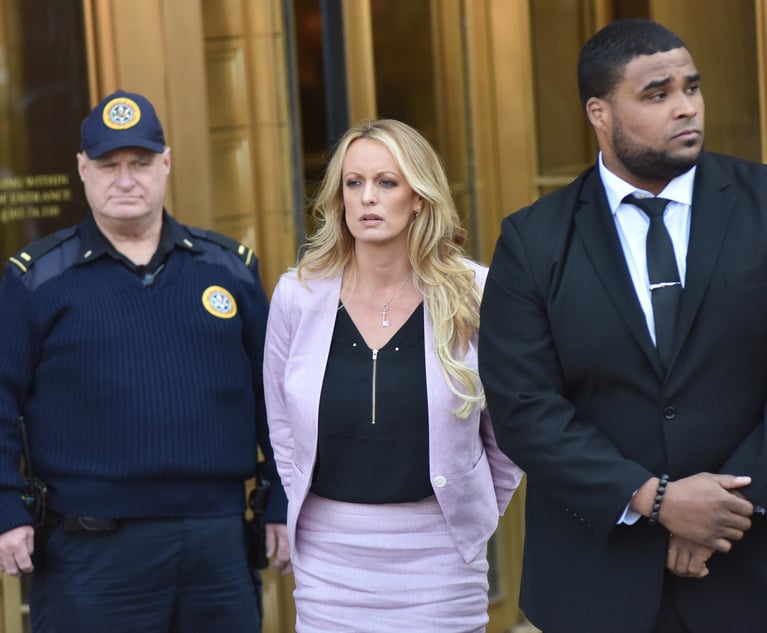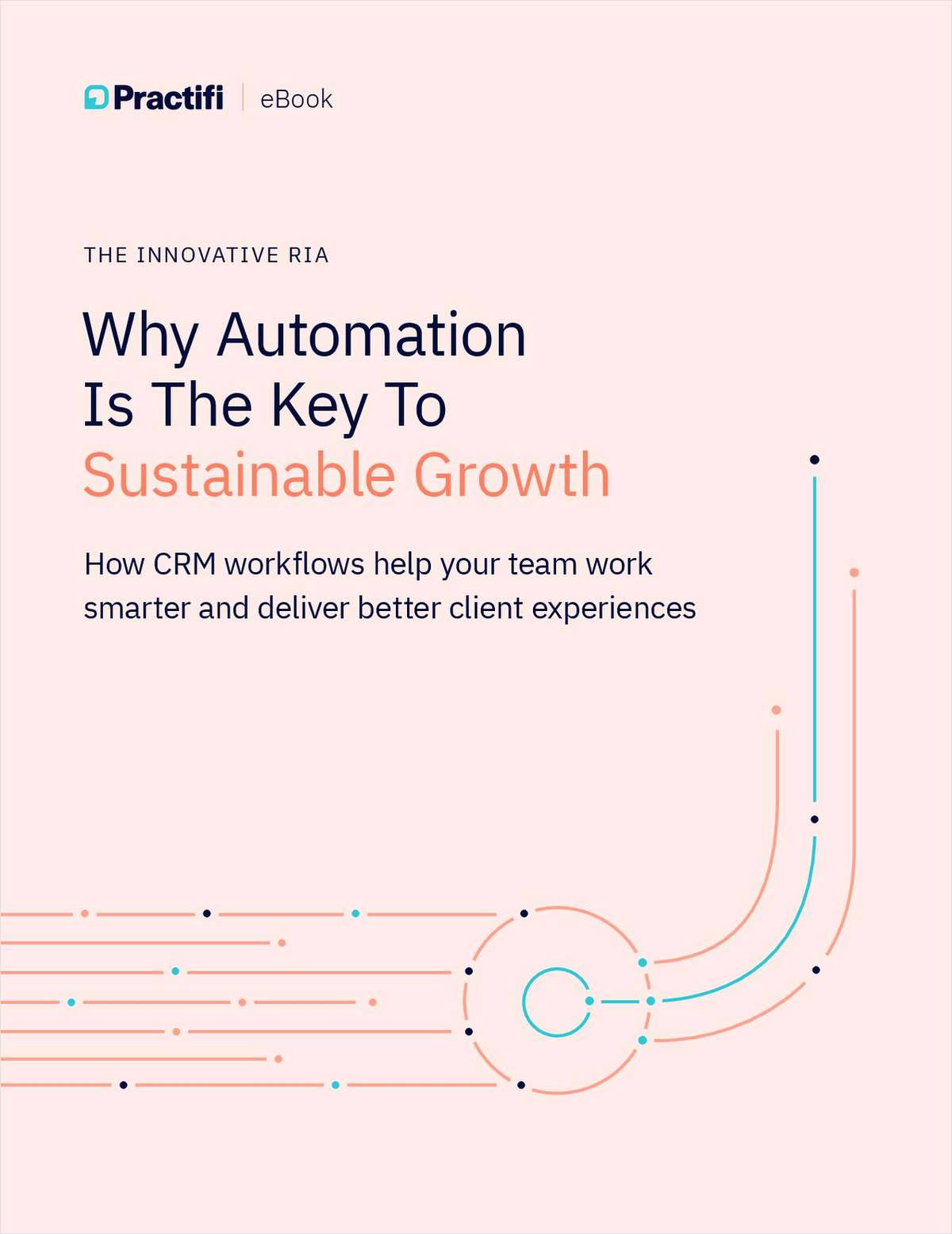Cake Bakers Are Subject To Antidiscrimination Laws
Does a devout Christian who is in the business of making wedding cakes for a living have a First Amendment right to refuse to make a wedding cake for a…
October 27, 2017 at 01:47 PM
4 minute read
Does a devout Christian who is in the business of making wedding cakes for a living have a First Amendment right to refuse to make a wedding cake for a gay couple? Sometime late this year the United Supreme Court will consider that question when it hears oral argument in Masterpiece Cakeshop, Ltd. v. Colorado Civil Rights Comm'n. We believe the Supreme Court should answer that question with a resounding “no” and reaffirm—as it has held in many past decisions—that a state's interest in enforcing antidiscrimination laws with respect to public accommodations is paramount.
Disturbingly, President Trump's Department of Justice recently filed an amicus brief in support of the baker—yet another indication of the Trump Administration's antipathy towards the LGBTQ community and its willingness to take legal positions that are turning back the clock on decades of antidiscrimination law.
While the case may seem to present a novel question involving the occasional tension between antidiscrimination laws and the First Amendment, the law in this area is long settled. If the Supreme Court sides with the baker, it will do so only by departing from many years of its own precedents.
The baker raises claims involving his right to religious liberty and to freedom of expression. Specifically, he argues that as a devout Christian he should not be compelled to bake a cake that honors a same-sex union because doing so violates his sincerely held religious beliefs. He also argues that forcing him to bake a custom wedding cake for a gay couple constitutes “compelled expression,” or at least expressive conduct, within the ambit of the First Amendment's freedom of speech clause.
The Supreme Court effectively disposed of the baker's religious liberty claim nearly 27 years ago, in Employment Div. v. Smith. Justice Scalia, writing for the court, explained that if a law of general applicability incidentally burdens a person's exercise of his religious beliefs (such as smoking peyote as part of an ancient Native American religious ceremony), the law must be upheld as long as it has a rational basis. Subsequent cases have made clear that a state's interest in forbidding discrimination in places of public accommodation—and there is no question that a commercial cake baker is a public accommodation—is a rational, if not compelling, state interest.
Whether a custom wedding cake is a form of protected expression under the First Amendment is a more debatable question. But even if it is, that does not mean the baker should win his case. Similar to Smith, the Supreme Court has held that the government can regulate communicative conduct if it has an important interest unrelated to the suppression of the message and if the impact on the communication is no more than necessary to achieve the government's purpose. United States v. O'Brien, 391 U.S. 367 (1968). Laws barring discrimination in public accommodations do not target the content of speech. Even if they have an incidental effect on speech, they are necessary to protect against discrimination.
We fear the slippery slope of a decision in favor of insulating cake bakers from antidiscrimination laws. Hairdressers consider their work to be a form of artistic expression; may they refuse to provide their services to people they find religiously objectionable? Chefs, too, often consider their cuisine to be a form of expression. Will chefs have a constitutional right to refuse to serve food to persons whose race, religion, sex, sexual orientation or other characteristic the chef deems religiously offensive? It's not too far down the slippery slope before it becomes constitutionally permissible for the owner of a luncheonette to use religion as an excuse for refusing to serve blacks, Jews, Muslims, and members of other disfavored groups.
This content has been archived. It is available through our partners, LexisNexis® and Bloomberg Law.
To view this content, please continue to their sites.
Not a Lexis Subscriber?
Subscribe Now
Not a Bloomberg Law Subscriber?
Subscribe Now
NOT FOR REPRINT
© 2025 ALM Global, LLC, All Rights Reserved. Request academic re-use from www.copyright.com. All other uses, submit a request to [email protected]. For more information visit Asset & Logo Licensing.
You Might Like
View All
The Stormy Daniels 'Hush Money' Trial: Donald Trump Should Be Very Worried
7 minute read
Shining a Light on Opposing Hate: The Palestinian Protesters Who Defended New Haven's Menorah
6 minute readTrending Stories
- 1'Discordant Dots': Why Phila. Zantac Judge Rejected Bid for His Recusal
- 2Here's What Corporate Litigators Expect Del. Courts to Address in 2025
- 3U.S. Supreme Court Has No Jurisdiction Over Trump's New York Criminal Case: Prosecutors
- 4The Law Firm Disrupted: With KPMG's Proposed Entry, Arizona's Liberalized Legal Market is Getting Interesting
- 5Womble Bond Dickinson Adds New Leaders as Merger Is Completed
Who Got The Work
Michael G. Bongiorno, Andrew Scott Dulberg and Elizabeth E. Driscoll from Wilmer Cutler Pickering Hale and Dorr have stepped in to represent Symbotic Inc., an A.I.-enabled technology platform that focuses on increasing supply chain efficiency, and other defendants in a pending shareholder derivative lawsuit. The case, filed Oct. 2 in Massachusetts District Court by the Brown Law Firm on behalf of Stephen Austen, accuses certain officers and directors of misleading investors in regard to Symbotic's potential for margin growth by failing to disclose that the company was not equipped to timely deploy its systems or manage expenses through project delays. The case, assigned to U.S. District Judge Nathaniel M. Gorton, is 1:24-cv-12522, Austen v. Cohen et al.
Who Got The Work
Edmund Polubinski and Marie Killmond of Davis Polk & Wardwell have entered appearances for data platform software development company MongoDB and other defendants in a pending shareholder derivative lawsuit. The action, filed Oct. 7 in New York Southern District Court by the Brown Law Firm, accuses the company's directors and/or officers of falsely expressing confidence in the company’s restructuring of its sales incentive plan and downplaying the severity of decreases in its upfront commitments. The case is 1:24-cv-07594, Roy v. Ittycheria et al.
Who Got The Work
Amy O. Bruchs and Kurt F. Ellison of Michael Best & Friedrich have entered appearances for Epic Systems Corp. in a pending employment discrimination lawsuit. The suit was filed Sept. 7 in Wisconsin Western District Court by Levine Eisberner LLC and Siri & Glimstad on behalf of a project manager who claims that he was wrongfully terminated after applying for a religious exemption to the defendant's COVID-19 vaccine mandate. The case, assigned to U.S. Magistrate Judge Anita Marie Boor, is 3:24-cv-00630, Secker, Nathan v. Epic Systems Corporation.
Who Got The Work
David X. Sullivan, Thomas J. Finn and Gregory A. Hall from McCarter & English have entered appearances for Sunrun Installation Services in a pending civil rights lawsuit. The complaint was filed Sept. 4 in Connecticut District Court by attorney Robert M. Berke on behalf of former employee George Edward Steins, who was arrested and charged with employing an unregistered home improvement salesperson. The complaint alleges that had Sunrun informed the Connecticut Department of Consumer Protection that the plaintiff's employment had ended in 2017 and that he no longer held Sunrun's home improvement contractor license, he would not have been hit with charges, which were dismissed in May 2024. The case, assigned to U.S. District Judge Jeffrey A. Meyer, is 3:24-cv-01423, Steins v. Sunrun, Inc. et al.
Who Got The Work
Greenberg Traurig shareholder Joshua L. Raskin has entered an appearance for boohoo.com UK Ltd. in a pending patent infringement lawsuit. The suit, filed Sept. 3 in Texas Eastern District Court by Rozier Hardt McDonough on behalf of Alto Dynamics, asserts five patents related to an online shopping platform. The case, assigned to U.S. District Judge Rodney Gilstrap, is 2:24-cv-00719, Alto Dynamics, LLC v. boohoo.com UK Limited.
Featured Firms
Law Offices of Gary Martin Hays & Associates, P.C.
(470) 294-1674
Law Offices of Mark E. Salomone
(857) 444-6468
Smith & Hassler
(713) 739-1250












